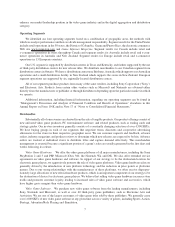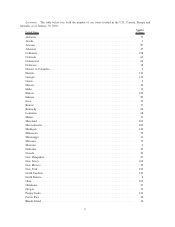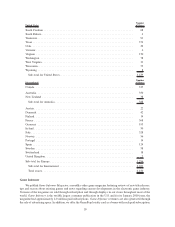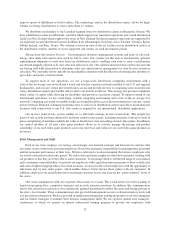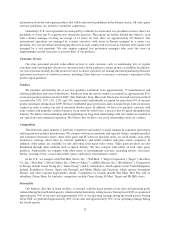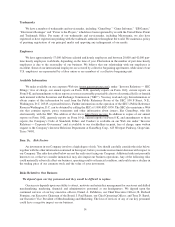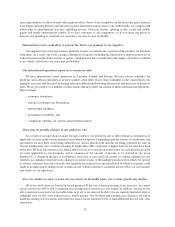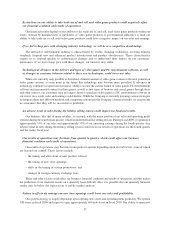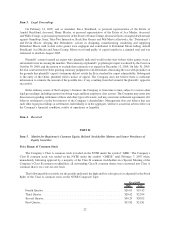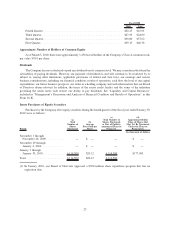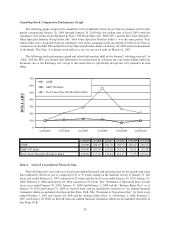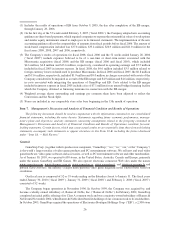GameStop 2009 Annual Report Download - page 31
Download and view the complete annual report
Please find page 31 of the 2009 GameStop annual report below. You can navigate through the pages in the report by either clicking on the pages listed below, or by using the keyword search tool below to find specific information within the annual report.increasing number of sellers of used video game products. Some of our competitors in the electronic game industry
have longer operating histories and may have greater financial resources than we do. Additionally, we compete with
other forms of entertainment activities, including movies, television, theater, sporting events, casual and mobile
games and family entertainment centers. If we lose customers to our competitors, or if we reduce our prices or
increase our spending to maintain our customers, we may be less profitable.
International events could delay or prevent the delivery of products to our suppliers.
Our suppliers rely on foreign sources, primarily in Asia, to manufacture a portion of the products we purchase
from them. As a result, any event causing a disruption of imports, including the imposition of import restrictions or
trade restrictions in the form of tariffs or quotas, could increase the cost and reduce the supply of products available
to us, which could lower our sales and profitability.
Our international operations expose us to numerous risks.
We have international retail operations in Australia, Canada and Europe. Because release schedules for
hardware and software introduction in these markets often differ from release schedules in the United States, the
timing of increases and decreases in foreign sales may differ from the timing of increases and decreases in domestic
sales. We are also subject to a number of other factors that may affect our current or future international operations.
These include:
• economic downturns;
• currency exchange rate fluctuations;
• international incidents;
• government instability; and
• competitors entering our current and potential markets.
There may be possible changes in our global tax rate.
As a result of our operations in many foreign countries, our global tax rate is derived from a combination of
applicable tax rates in the various jurisdictions in which we operate. Depending upon the sources of our income, any
agreements we may have with taxing authorities in various jurisdictions and the tax filing positions we take in
various jurisdictions, our overall tax rate may be higher than other companies or higher than our tax rates have been
in the past. We base our estimate of an annual effective tax rate at any given point in time on a calculated mix of the
tax rates applicable to our Company and to estimates of the amount of income to be derived in any given
jurisdiction. A change in the mix of our business from year to year and from country to country, changes in rules
related to accounting for income taxes, changes in tax laws in any of the multiple jurisdictions in which we operate
or adverse outcomes from the tax audits that regularly are in process in any jurisdiction in which we operate could
result in an unfavorable change in our overall tax rate, which could have a material adverse effect on our business
and results of our operations.
If we are unable to renew or enter into new leases on favorable terms, our revenue growth may decline.
All of our retail stores are located in leased premises. If the cost of leasing existing stores increases, we cannot
assure you that we will be able to maintain our existing store locations as leases expire. In addition, we may not be
able to enter into new leases on favorable terms or at all, or we may not be able to locate suitable alternative sites or
additional sites for new store expansion in a timely manner. Our revenues and earnings may decline if we fail to
maintain existing store locations, enter into new leases, locate alternative sites or find additional sites for new store
expansion.
16



